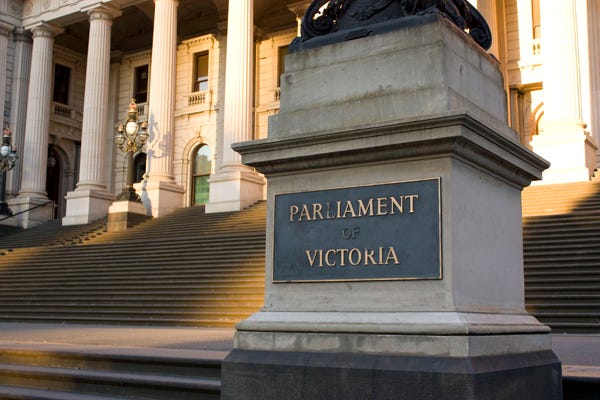'Laggard state': Ombudsman's parting shot at Victorian government's justice track record
“Victoria was once a leader in justice reform. Perhaps one day we will be one again.”
In her final report, departing Victorian Ombudsman Deborah Glass has lashed the state government on its justice reform track record and refusal to properly implement a UN commitment aiming to prevent torture in places of incarceration.
Glass, who has served as the state’s Ombudsman for a decade, delivered her last report to the Victorian government this week, with a focus on criminal justice policies and a lack of compliance with the UN’s Optional Protocol to the Convention Against Torture (OPCAT).
OPCAT requires all signatories to establish independent inspection bodies to monitor all places of detention, known as NPMs. Australia has ratified OPCAT and all state and territories were required to have established and nominated NPMs by January last year.
But Victoria, along with New South Wales and Queensland, is still yet to do so, despite the Ombudsman repeatedly pushing for it to be the oversight body, and demonstrating how it would do this.
In her final report, Glass said Victoria is “one of the laggard states” on the UN agreement, and that her office had provided the state government with numerous reports on how it could be best implemented, but these have “mostly been ignored”.
“I do not know why the government has been unable to make the decision to designate the Ombudsman, at the least, to be the independent inspector of Victorian prisons,” Glass said.
“I have wondered if it is because they are simply unwilling to give me any new functions. Perhaps now they will finally get on with it.”
Glass has previously said it would cost about $3 million annually for an existing body to take on new inspection duties under OPCAT, equating to less than 1% of the Corrections budget in the state.
“A negligible sum in the government’s accounts, with the potential to save vastly more millions with what such inspections can prevent - such as riots, or scandals of the sort we have seen in the Northern Territory, resulting in costly Royal Commissions,” she said.
As her retirement from the position approaches, Glass also criticised the Victorian government for not pursuing “brave” reforms in the criminal justice space.
“Real reform was, and is still, needed in the wider justice sector,” she said.
“But this requires a government not driven by headlines that all too often have triggered a knee-jerk tightening of bail, parole and sentencing laws. Victoria was once a leader in justice reform. Perhaps one day we will be one again.
“I thought this would be a government more interested in justice reform, and supportive of my work. How wrong I was.”
Australia’s three most populous states are yet to move on OPCAT due largely to a funding dispute with the Commonwealth government on how these new bodies will be resourced.
In a recent submission to the UN committee responsible for OPCAT, the designated NPMs around the country said that there has been “ample time” for these issues to be resolved, but there is still an impasse.
A visit by the Subcommittee to the Prevention of Torture (SPT) to Australia was suspended after the group was denied access to places of detention in New South Wales and Queensland.
The NPMs also offered their response to Australia’s reply to this incident, saying that it gave an “incomplete and decontextualised picture of the status and challenges of the Australian NPM”.
The bodies also said they were “greatly disappointed” that the federal government only briefly mentioned the funding issue that is preventing compliance with OPCAT.

